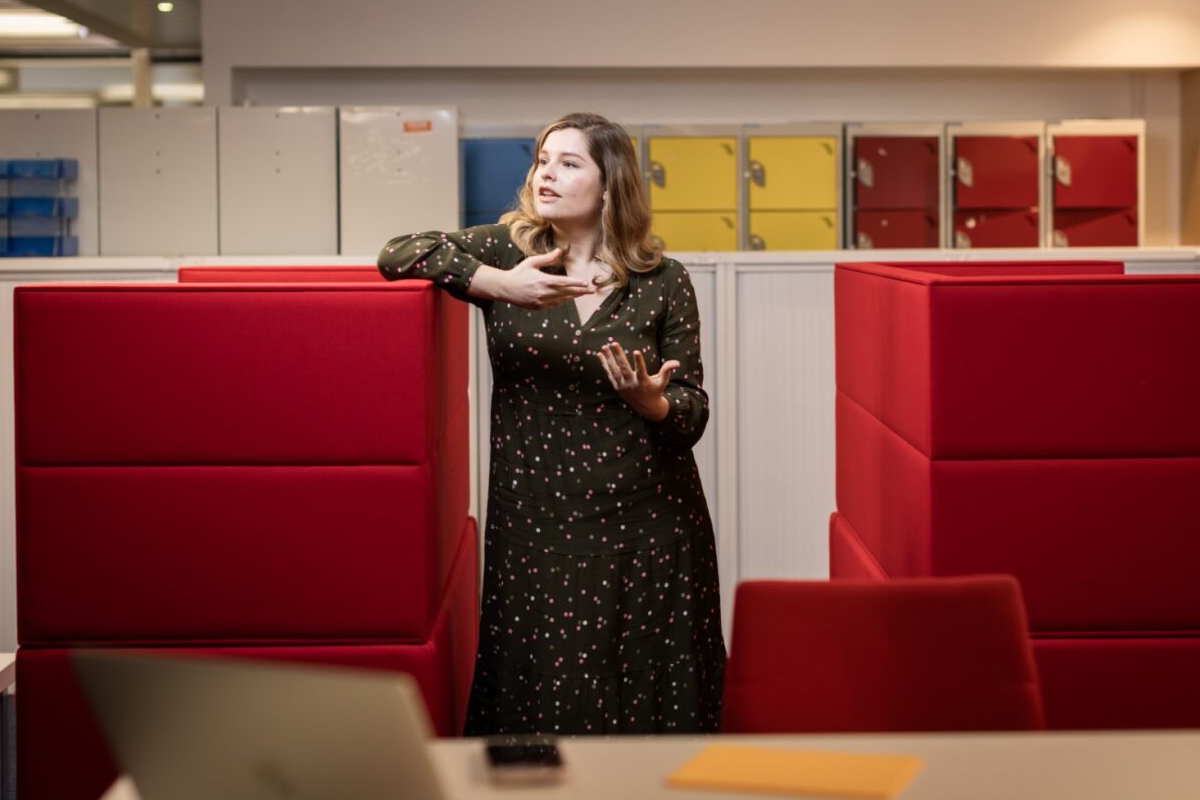Our values

Our values
Shaped by Warwick's community, our values represent the way we work together to deliver our strategy and ambitions.
From creating worldwide positive change and striving for student and staff success to creating a vibrant, inclusive campus, our values unite us in being a force for good. Our values have been created with input from over 800 staff. They describe what makes us who we are, and when we are at our best.
Pointing the way ahead, going forward and further with purpose is what we have always done at Warwick. As the world evolves, the way in which we approach our work will change, but our values and how we do things will remain constant.
Our values are not just words on a page but actions and behaviours that are seen, heard, and felt in what we do every day.
Our values are:
- Going forward and further
- Thinking freely
- Thriving on difference
- Creating connections
- Sharing opportunities
Our behaviours
Our community has shaped the behaviours that represent our values.
We will be celebrating our colleagues who demonstrate these values in everything they do. These values and behaviours will be embedded across all areas of our work; from Personal Development Reviews to decision making to recruitment and staff awards.
“I’m really proud of our Warwick values because they came from our community and they reflect our community. You won’t find another set of values like them anywhere else in HE”
Rachel Sandby-Thomas, Registrar
Going forward and further
We’re ready to lead, go first and bring the impetus for change. We have the ambition to break new ground and the rigour and commitment to deliver.
Behaviours:
- Striving for better
- Confidently taking the initiative
- Supporting each other to create positive change
- Making a plan and making it happen
- Learning from mistakes and moving on

Thinking freely
We're not afraid to do new things or do things differently. We use our imagination and creativity to make positive change and we go beyond the status quo.
Behaviours:
- Nurturing new ideas and backing people when they have them
- Going beyond the status quo
- Making time for imagination and creativity
- Thinking long-term and seeing the bigger picture
- Taking responsibility for what we say and do

Thriving on difference
Our ingenuity, energy and resilience come from our diverse community. We actively seek out different perspectives to stimulate ideas and empathy. We're always ready to respond and adapt.
Behaviours:
- Looking for different perspectives to solve problems and find solutions
- Disagreeing in a respectful way
- Thinking about things from other people’s point of view
- Showing kindness to others
- Valuing diversity of all kinds across our community

Creating connections
We build partnerships and break down barriers inside and outside the university. We lead with compassion and strive to find the common ground that unites us.
Behaviours:
- Working together to make good things happen
- Challenging things that stop us working together or with others
- Listening, learning and building strong relationships
- Looking for ideas and inspiration in the world outside
- Communicating clearly without jargon

Sharing opportunities
Making a better world depends on all of us playing a part. We empower others inside and outside the university to create positive change.
Behaviours:
- Inspiring, supporting and giving people space
- Doing what we can to help others thrive
- Recognising and celebrating success
- Being generous with our knowledge and time
- Being proud of what we do and how we do it

Resources
You can use these resources to get to know our values, share them with your team and recognise colleagues who are bringing them to life.
Our values in action
Some examples of how we have already demonstrated our values through our actions.
Shaping our values
Learn about how we developed our values in collaboration with staff.
FAQs
Find out more about our values with our frequently asked questions.
Do you have a story to share about how you’ve brought the values to life?
Let us know:
